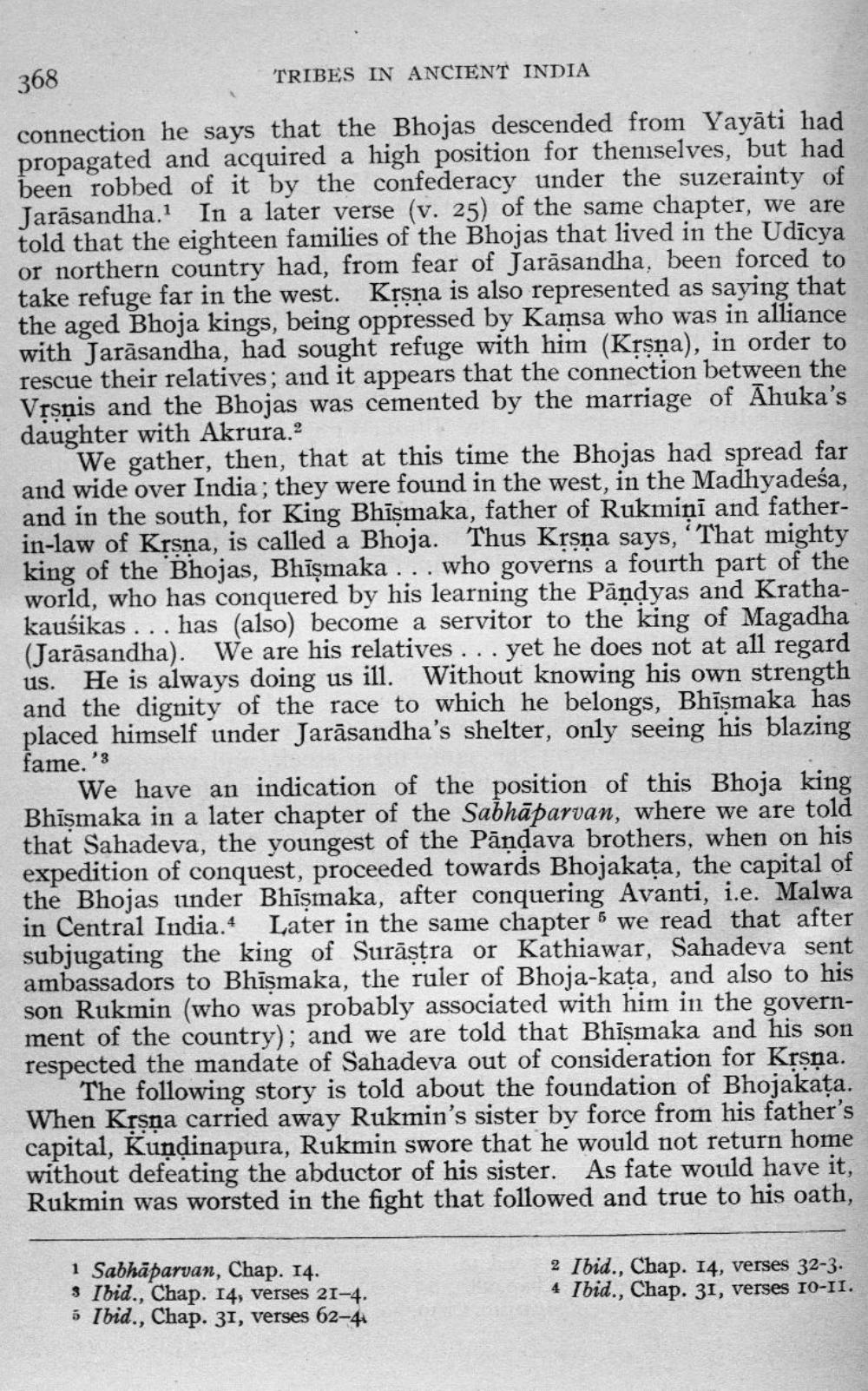________________
368
TRIBES IN ANCIENT INDIA
connection he says that the Bhojas descended from Yayati had propagated and acquired a high position for themselves, but had been robbed of it by the confederacy under the suzerainty of Jarasandha. In a later verse (v. 25) of the same chapter, we are told that the eighteen families of the Bhojas that lived in the Udicya or northern country had, from fear of Jarasandha, been forced to take refuge far in the west. Krsna is also represented as saying that the aged Bhoja kings, being oppressed by Kamsa who was in alliance with Jarasandha, had sought refuge with him (Kṛṣṇa), in order to rescue their relatives; and it appears that the connection between the Vrsnis and the Bhojas was cemented by the marriage of Ahuka's daughter with Akrura.2
We gather, then, that at this time the Bhojas had spread far and wide over India; they were found in the west, in the Madhyadeśa, and in the south, for King Bhismaka, father of Rukmini and fatherin-law of Krsna, is called a Bhoja. Thus Krsna says, "That mighty king of the Bhojas, Bhişmaka... who governs a fourth part of the world, who has conquered by his learning the Pandyas and Krathakausikas... has (also) become a servitor to the king of Magadha (Jarasandha). We are his relatives... yet he does not at all regard us. He is always doing us ill. Without knowing his own strength and the dignity of the race to which he belongs, Bhismaka has placed himself under Jarasandha's shelter, only seeing his blazing fame. '3
5
We have an indication of the position of this Bhoja king Bhismaka in a later chapter of the Sabhaparvan, where we are told that Sahadeva, the youngest of the Pandava brothers, when on his expedition of conquest, proceeded towards Bhojakața, the capital of the Bhojas under Bhismaka, after conquering Avanti, i.e. Malwa in Central India. Later in the same chapter we read that after subjugating the king of Surastra or Kathiawar, Sahadeva sent ambassadors to Bhismaka, the ruler of Bhoja-kata, and also to his son Rukmin (who was probably associated with him in the government of the country); and we are told that Bhismaka and his son respected the mandate of Sahadeva out of consideration for Krsna. The following story is told about the foundation of Bhojakaṭa. When Kṛṣṇa carried away Rukmin's sister by force from his father's capital, Kundinapura, Rukmin swore that he would not return home without defeating the abductor of his sister. As fate would have it, Rukmin was worsted in the fight that followed and true to his oath,
1 Sabhaparvan, Chap. 14.
3 Ibid., Chap. 14, verses 21-4.
5 Ibid., Chap. 31, verses 62-4
2 Ibid., Chap. 14, verses 32-3.
4 Ibid., Chap. 31, verses 10-11.




